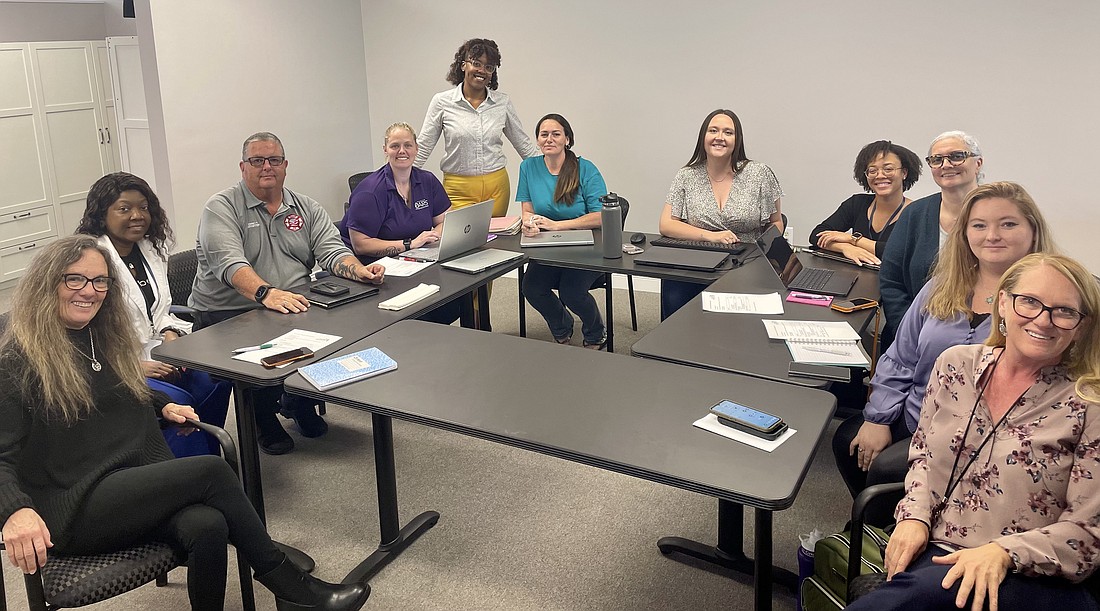- April 5, 2025
Your free article limit has been reached this month.
Subscribe now for unlimited digital access to our award-winning local news.

Last year, Flagler County received a $1.2 million recurring grant from the Florida Department of Health to establish a Coordinated Opioid Recovery program.
The program, known as CORe, has been successful in Palm Beach and Clay counties. Its multi-disciplinary, multi-agency approach provides treatment every step of the way toward recovery.
Flagler County, which had the eighth-highest opioid death rate in the state in 2020, is one of 12 Florida counties to receive the grant through the governor’s initiative.
Volusia County has also received CORe funding. While the DOH in Volusia is managing that program, DOH-Flagler selected Flagler Cares to manage its CORe program. Flagler Cares is a non-profit that works with other non-profits to provide a safety net of health and social services for the neediest people in the county.
The Flagler County CORe program has been up and running since January, operating out of a suite at the Flagler County Village at City Marketplace.
The program partners have named the office HEAL for Hope, Empathy, Acceptance and Love.
Jeannette Simmons, Flagler Cares’ chief innovation officer is the Flagler County CORe program coordinator. The program involves first responders, paramedics, behavioral health professionals and peer specialists.
Every agency that Flagler Cares reached out to was receptive to participating in the program.
“We reached out to Flagler County Fire Rescue because they have Community Paramedics and they said ‘absolutely,’” Simmons said. “We then reached out to (Flagler Open Arms Recovery Services) to discuss the peer recovery support specialist component, and they said ‘yes, absolutely.’”
Flagler Cares sent out a request for a proposal for a medication assisted treatment program and selected Community Care Network out of Daytona Beach. CCN comes to the Flagler CORe office twice a week.
Flagler Cares’ Tamira Alston is the program's behavioral health navigator.
“If you think of Flagler Cares as the hub of the wheel, she's keeping all the spokes going in the right direction, ensuring that the participant is having access to all the stages and to all the phases of treatment,” Simmons said. “And what's really cool about it, is that they don't have to take all parts of the treatment. If they don't want to necessarily have counseling or they don't want to have medication assisted treatment, they don't have to.”
Flagler County CORe is currently serving 21 people, Simmons said.
“I want to serve everybody, anybody in Flagler County who has an opioid use disorder or substance use disorder,” she said. “But we recognize it's going to be a little bit slow and people are probably going to want to know, is it truly free? Is this too good to be true?”
The program begins with first responders. The day after an overdose, paramedics do a wellbeing check with a peer recovery support specialist, who talks about CORe services.
The paramedic provides a medial assessment to decide how much medication to administer. The medication can be provided every day for seven days until the person can receive care from a medication treatment service provider.
I want to serve everybody, anybody in Flagler County who has an opioid use disorder or substance use disorder. But we recognize it's going to be a little bit slow and people are probably going to want to know, is it truly free? Is this too good to be true?” — JEANNETTE SIMMONS, CORe program coordinator
“We have no capacity issues,” Simmons said. “We’ve been able to get people in right away. One of the most awesome parts of this program is that people don't have to wait. They don't have to suffer in withdrawal.”
Simmons said the people CORe serves misuse substances for a variety of reasons.
“Life’s just not providing them much hope,” Simmons said. “Maybe they don’t have resources. They don't have a home or employment or health insurance. And so we recognize that just throwing some medication at it is going to help, but is it going to help for the long term and really keeping this person motivated to continue this treatment?
“So once the person is stabilized, we start addressing all of those other social care needs that come up such as ID, birth certificate, employment, housing, childcare, maybe reunification. Maybe they're involved with the criminal justice system. So we're going to look at all the parts and see what it is that we can do to assist them in managing those parts better, and hopefully resolving them in a positive way.”
There is a lot of stigma around medication assisted treatment for opioid use disorder, Simmons said. So part of the CORe partners’ mission is to let people know that it’s OK to ask for help.
Your free article limit has been reached this month.
Subscribe now for unlimited digital access to our award-winning local news.